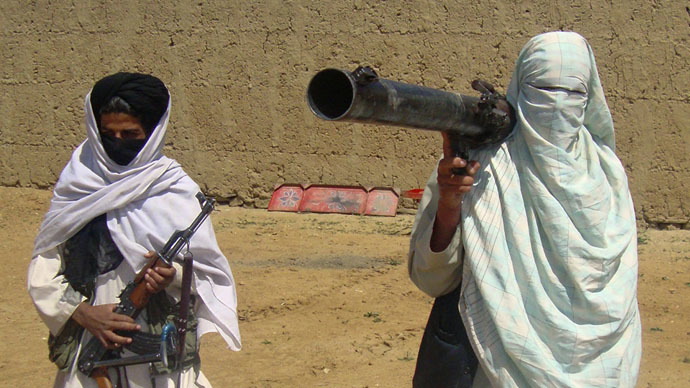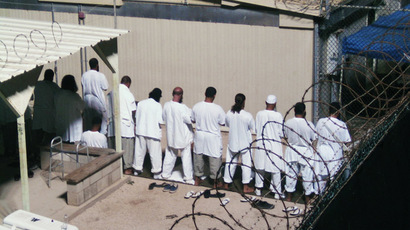Taliban not a terrorist group? White House official says it’s ‘armed insurgency’

A White House spokesperson preferred to talk of the Taliban as “an armed insurgency” rather than a terrorist organization during a press briefing, when a reporter pressed him about Army Sgt. Bowe Bergdahl’s release.
Responding to a question posed by ABC’s chief White House correspondent Jonathan Karl, deputy press secretary Eric Schultz argued the US can swap prisoners with the Taliban because the group is not a terrorist organization but “an armed insurgency.”
During the Wednesday briefing, Karl asked how the US decision to swap Army Sgt. Bowe Bergdahl for five Taliban leaders held at Guantanamo Bay differs from the Jordanian government’s trade of a convicted terrorist for the release of an Air Force pilot held by the Islamic State.
“As you know this was highly discussed at the time and prisoner swaps are a traditional end-of-conflict interaction that happens. As the war in Afghanistan wound down, we felt like it was the appropriate thing to do,” Schultz replied.
Bergdahl was captured in 2009 and held for five years by the Haqqani network, a militant faction closely aligned with the Afghan Taliban. Last summer, Bergdahl was exchanged for five high-ranking Taliban operatives, including one Haqqani associate, in a controversial deal brokered by the Qatar government between the US and the Haqqani network.
READ MORE: US captive soldier in Afghanistan exchanged for 5 Guantanamo detainees
Schultz added: “I’d also point out that the Taliban is an armed insurgency. ISIL is a terrorist group. So we don’t make concessions to terrorist groups.”
Karl pressed: “You don’t think the Taliban is a terrorist group?”
“I don’t think that the Taliban…the Taliban is an armed insurgency,” Schultz said after a pause. “This was the winding down of the war in Afghanistan, and that’s why this arrangement was dealt.”
The divisive deal raised questions from the administration’s critics across the aisle.
“This is a complete change of our national security strategy of not negotiating with terrorists,” Republican Representative Mike Rogers told ABC News at the time of Bergdahl’s release. “I think it sends a terrible national security message – not just to Afghanistan, but to the rest of the world.”
Senator Ted Cruz also worried about the precedent the swap might set.
“What does this tell terrorists? First, that if you capture a US soldier you can trade that soldier for five terrorist prisoners? That’s a very dangerous precedent,” Cruz told ABC.
Also at the time, the Obama administration attempted to characterize Bergdahl as a prisoner of war rather than a hostage. Obama said: “This is what happens at the end of wars.”

The US government maintains two separate lists of terrorist organizations. One is maintained by the State Department while the Treasury Department has its own list, created by a Bush-era executive order, which is responsible for economic sanctions on entities and individuals with alleged ties to terrorism.
The State Department added the Haqqani network to its Foreign Terrorist Organization list in 2012 and the Taliban in Pakistan was added in 2010. The Afghan faction of the Taliban, however, is not on the FTO list.
The Haqqani network is also listed on the Treasury’s Designated Global Terrorist list, which also includes the Taliban in both Pakistan and Afghanistan.
Earlier this year, when asked if the White House considered the Taliban terrorists, Press Secretary Jay Carney dodged the question.
“We don’t get to choose our enemies when we go to war,” Carney told reporters. “We regard the Taliban as an enemy combatant in a conflict that has been going on, in which the United States has been involved for more than a decade. In this case – as you know we dealt with the Qataris in order to secure [Bergdahl’s] release – it was absolutely the right thing to do.”
Speaker of the House John Boehner decried the deal, saying: “One of their greatest protections – knowing that the United States does not negotiate with terrorists – has been compromised.”














